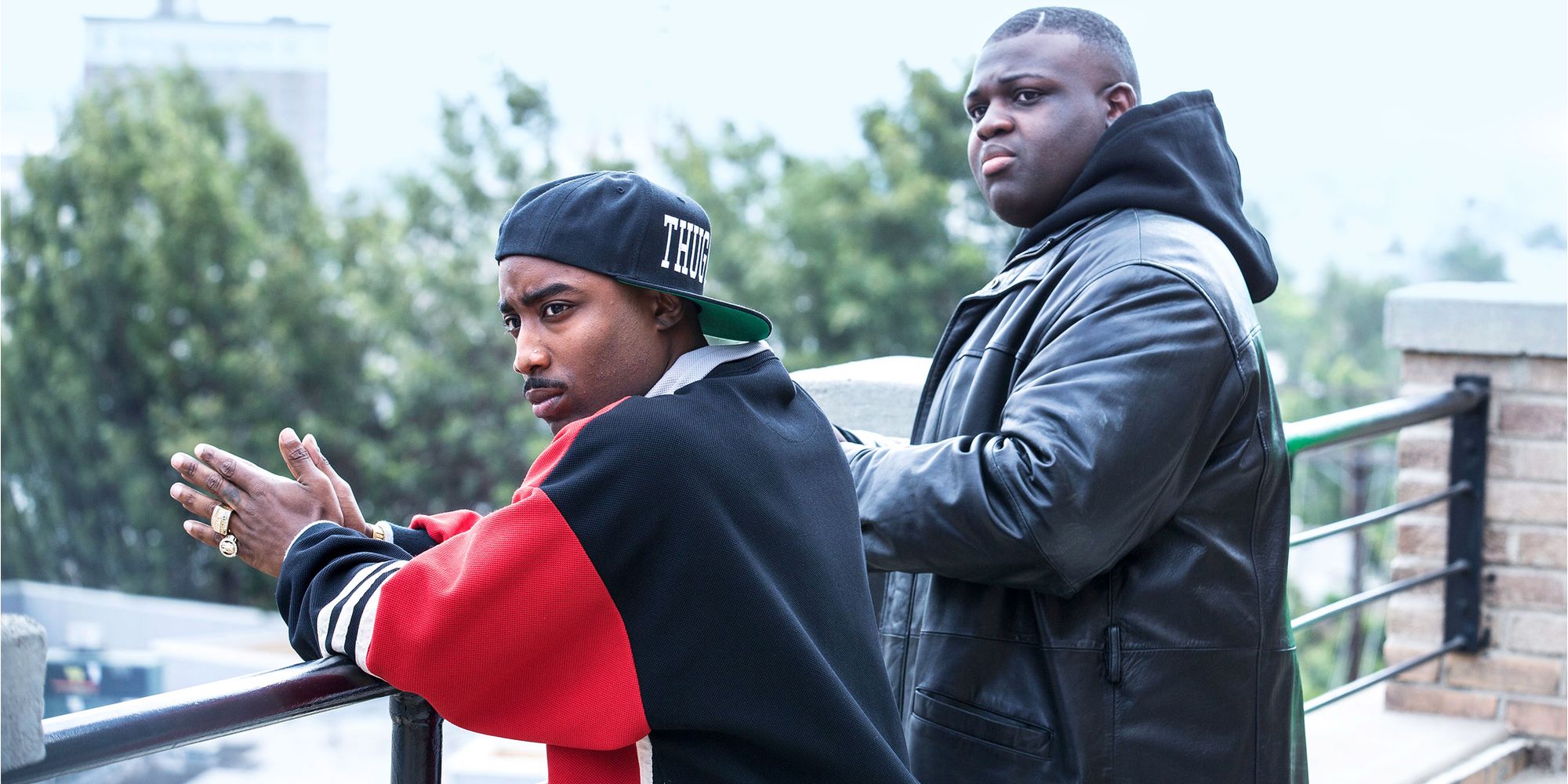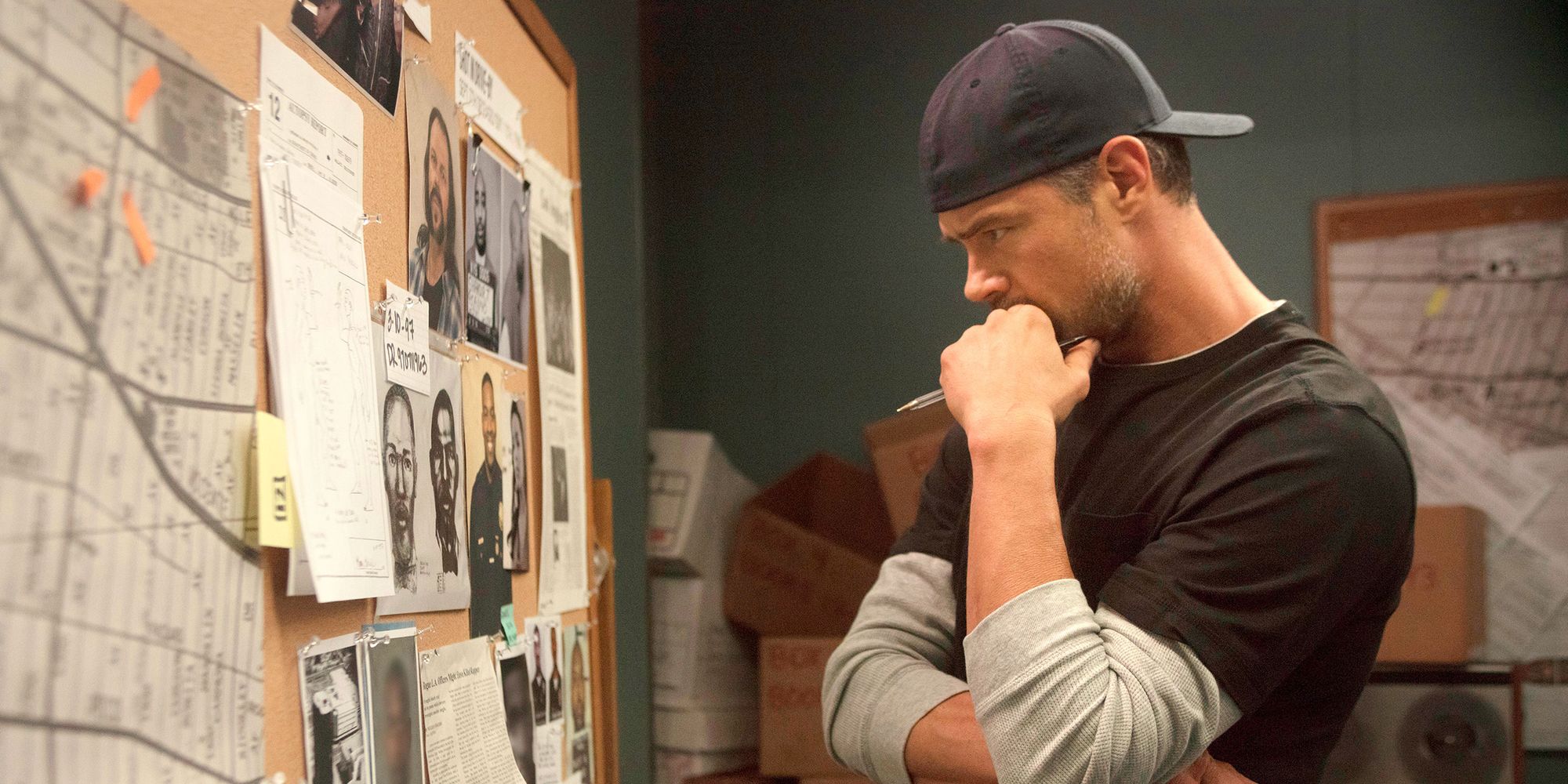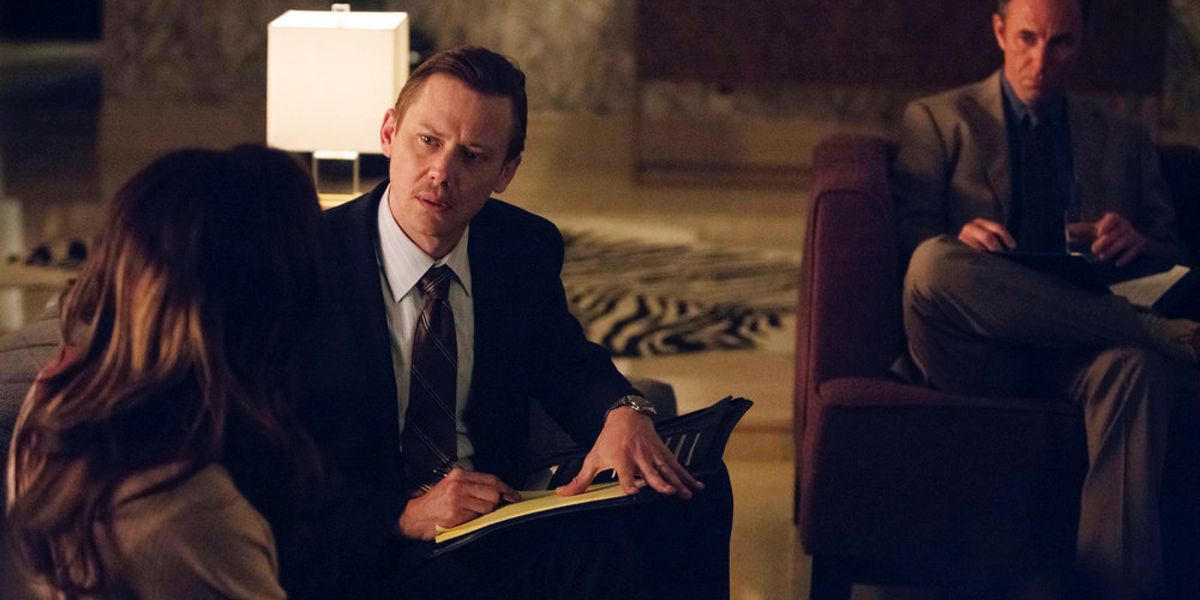As a business, Hollywood is often reactionary. The success of one project will inevitably result in a series of similar, seemingly hastily produced offerings from other studios or television networks. Those projects typically vary wildly in terms of quality, and you’d be hard pressed to find one capable of surpassing its ostensible progenitor, but every once in a while, an emulator comes along that is entertaining enough to warrant something as close to a pass as it’s likely going to get. That much is true of USA’s Unsolved: The Murders of Tupac & The Notorious B.I.G., a series it would not be unfair to say was chasing the success of FX’s The People v. O.J. Simpson: American Crime Story.
Unlike, say, NBC’s lukewarm Law & Order True Crime: The Menendez Murders, Unsolved is more police procedural than courtroom drama, which plays in its favor and distances it to a certain degree from the Emmy-winning American Crime Story. But the series, from creator Kyle Long (Suits), and based on the book from real-life investigator Greg Kading — who is portrayed by Josh Duhamel in the first season — isn’t as concentrated on such a fixed event in American history, and as such it’s storytelling can be somewhat diffuse. Oddly, that’s both a feature and a bug of the series.
Related: McMafia Premiere Review: An Impressive But Chilly Take On Organized Crime
Unsolved unfolds across three storylines, often using a specific moment in one to address another and so on. In one of the storylines, the series follows Tupac Shakur (Marcc Rose) and Christopher “Biggie” Wallace (Wavyy Jonez) through moments in their respective careers, briefly touching on their friendship, professional successes, and eventual rivalry. But given that the story is largely inspired by the experiences Kading had while heading up a task force in 2006 to re-open the case of Wallace’s murder, it is no surprise that Unsolved is better suited to that side of the story, and as such, follows Kading’s team’s investigation, as well as the initial 1996 investigation lead by LAPD Detective Russell Poole.
Jimi Simpson plays Poole in one of many surprisingly engaging performances in the series. Poole is depicted as a seasoned and determined investigator whose attempts to find the truth are hampered as much by the people he works for as by those reluctant to speak with law enforcement. He gradually becomes convinced the LAPD is potentially involved in or at least knows more than it's saying about Wallace’s murder, which he also comes to believe is tied directly to the death of Tupac.
The Poole portion is perhaps the most compelling of the three main threads that comprise the series. Though its depiction of how a detective’s growing obsession with a single case gradually sets fire to his career is Cop Show 101 at this point, the true-crime component helps assuage issues one might have with that aspect of the story. The 2006 thread also offers up several strong performances, mainly from the aforementioned Duhamel, as well as Fargo season 2 MVP Bokeem Woodbine and Brent Sexton (The Killing). It, too, focuses on the impenetrability of the case and the toll it takes on the detectives investigating a nearly decade-old homicide.
Aside from looking into the same murders and both having strong lead performance, what these two threads really share is a sense that either could have been the focus of the entire season. That doesn’t necessarily mean one of them is irrelevant or superfluous, actually the opposite. The ambition required for Unsolved to attempt such structural gymnastics is actually impressive, and one that lends the series some technical respect if not full-throated praise, especially since its biggest shortcoming is in the depiction of the two murdered artists whose names are in the title.
The problem with the Tupac and Biggie segments are deliberately and maybe even necessarily not anchored to a specific moment in time. As a result, they tend to jump back and forth, acting as touchstones for the two investigations. This contributes somewhat to the diffuseness of the story, but it also puts the emphasis on the moment rather than the two human beings who were murdered. As such, while we get insight into the lives and minds of several detectives looking into the deaths of these two men, the victims themselves remain largely unexplored. It’s a missed opportunity, too, as the series would have benefitted from a deeper exploration into the culture around hip hop and how their relationship with it and one another shaped them as their careers flourished and their lives were sadly cut short.
The limitation in Unsolved’s storytelling is in part because it’s less interested in matters of politics and race than it is in being a police procedural, and one that ostensibly attempts to disprove its own title as the season progresses. But it’s odd that the series would seem limited at all, considering how overstuffed it can feel at times, jumping in time from Poole to Kading’s investigations and then back again, occasionally stopping to spend time with the men one might think would be destined to play a larger role here. Still, despite those shortcomings, Unsolved: The Murders of Tupac and the Notorious B.I.G. works as a cop show. And that may be enough, provided that’s all you’re looking for.
Next: Jessica Jones Season 2 Review: A (Very) Slow-Burn Mystery Lacks Direction
Unsolved: The Murders of Tupac and the Notorious B.I.G. continues next Tuesday with ‘Nobody Talks’ @10pm on USA.



